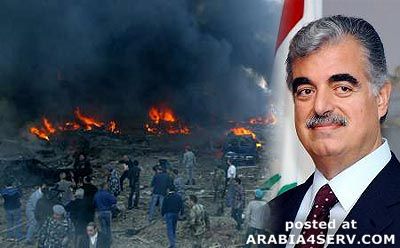ISIS attack is a message to Sunnis no less than Shiites
Alex Rowell/Now Lebanon/November 13/15
As well as being a horrific tragedy and loathsome atrocity, the ISIS double-bombing of south Beirut’s Burj al-Barajneh neighborhood yesterday – the deadliest attack of its kind in the capital since the civil war ended in 1990 – poses something of an analytical puzzle.
That ISIS should wish to kill a large number of Shiite civilians is, of course, no mystery in itself. Murderous enmity toward Shiite Muslims is a cornerstone and sine qua non of the group’s ideology. Shiites are “the insurmountable obstacle, the lurking snake, the crafty and malicious scorpion, the spying enemy, and the penetrating venom,” wrote Abu Mus`ab al-Zarqawi, ISIS’s ideological godfather, in a 2004 letter. Deeming them “more cunning than their Crusader masters,” and more threatening to Sunni Muslims than even George Bush’s America, Zarqawi later declared “total war” on the sect. ISIS’s current leader, the Zarqawi protégé Abu Bakr al-Baghdadi, called on followers earlier this year to “withdraw your swords” and put them “first of all to the Rafida [a pejorative term for Shiites] wherever you find them.”
Why ISIS should strike now in particular, however, having only done so once before in Lebanon, almost two years ago (a January 2014 car bomb in south Beirut that killed four), is less straightforward. Most commentary so far has interpreted the attack simply as a resumption of a previous bombing wave, which ran roughly from the summer of 2013 to the summer of 2014, carried out by various jihadist groups who declared they were retaliating for Hezbollah’s paramilitary intervention in aid of the Bashar al-Assad regime in neighboring Syria (“Thanks to God, a response was made to the massacres of the Party of Iran against the children of Syria,” read a typical claim of responsibility by the Al-Qaeda-affiliated Jabhat al-Nusra). While this may seem intuitively persuasive, there is reason to treat ISIS’s attack as a separate and novel case, based on different calculations.
For a start, previous bombings were generally tied by their perpetrators to explicit political demands. From the withdrawal of Hezbollah’s fighters from Syria to the release of Sunni inmates from Lebanese prisons, tangible objectives were listed by the militants as requirements for the explosions to stop.
The claim of responsibility attributed to ISIS for Thursday’s bombings, by contrast, states no demands, and offers zero possibility of truce or mercy. Instead, it speaks in purely theological terms of the “Rafida polytheists” and “apostates,” and of “aveng[ing] the honor of the Prophet […] and his Companions” (the latter bearing the clear imprint of Zarqawi, who wrote furiously in his 2004 letter of Shiites “calling the Companions infidels”). Nor does the statement make any mention of Hezbollah’s fighting in Syria at all. This is less surprising when one considers that, unlike Al-Qaeda, whose affiliates claimed 12 of the 15 attacks on predominantly Shiite and Alawite areas in Lebanon between July 2013 and January 2015, ISIS only rarely engages in direct combat with Hezbollah, whether in Syria or elsewhere.
On its face, then, there would be seem to be no logical objective – no concession sought, no quid pro quo tabled – to the violence: ISIS acted solely out of sheer sectarian zeal and venom. Yet there is always method in ISIS’s madness, and in this case it may lie not in the message sent to the Shiite community, but rather the hardline Sunni one.
Previous bombings of Lebanese Shiite-majority areas, as stated above, were almost entirely carried out by Al-Qaeda subsidiaries, not ISIS. The prestige this earnt Ayman al-Zawahiri’s cadres on the Sunni jihadist street was considerable; Hezbollah being the spearhead of hated Iran’s regional phalanx, believed by many to be almost single-handedly responsible for the survival of the Assad regime. It must have grated ISIS – a bitter rival of Al-Qaeda’s, despite their many similarities – a good deal to have been so decisively outclassed on the Lebanese front. Add to this Al-Nusra’s ever-rising star in Syria, where as a major component of the Gulf- and Turkey-backed Jaish al-Fatah coalition it has taken prime territory off the regime’s hands in recent months, and ISIS’s need to reassert itself before its constituents is all the more pressing. Yesterday’s attacks will have vividly illustrated to the Bin Ladenist underworld that Al-Qaeda – which has failed to score a strike in Lebanon for almost a year now – no longer hold the monopoly in Beirut, and the real mujahideen have arrived to handle business properly.
This is, of course, only a hypothesis – there may well turn out to be entirely different dynamics behind the attacks, or the ISIS claim may be found to be spurious. That the use of an explosives-laden motorcycle on Thursday matches the modus operandi used in a mysterious bombing in the border town of Arsal last week will undoubtedly be of interest to investigators. That the Arsal bomb, which killed a number of Sunni clerics, was blamed by one obscure group on the Hezbollah-linked Resistance Brigades militia raises the outside possibility that yesterday was simply a tit for the other’s tat. If, however, the above reading is correct, it suggests Lebanon may now be the theater of a grotesque competition between the world’s leading two jihadist organizations – a competition, incidentally, by which the jihadists’ purported enemies – Hezbollah, Tehran and Damascus – would only be strengthened. Whether this can be averted depends on whether the cool heads, as the cliché goes, of the public at large can triumph – as they have in the past – over the cold hearts of the fanatics.























